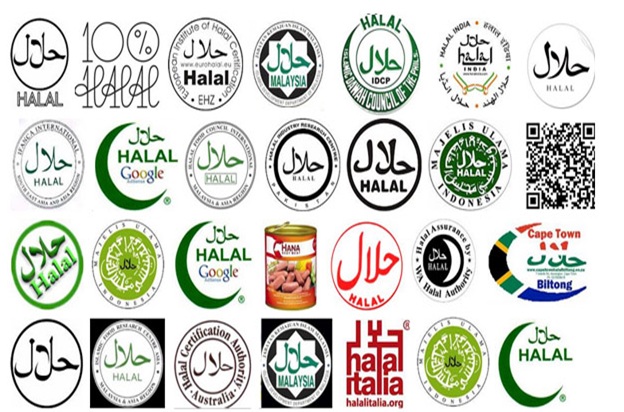By Saif Alam Siddiqui
The Halal dietary laws deal with the following four issues, of which all except one are in the animal kingdom.
- Prohibited and permitted Animals.
- Method of slaughtering.
- Prohibition of blood.
- Prohibition of intoxicants.
There are eleven generally accepted principles pertaining to Halal (permitted) and haram (prohibited) consumption in Islam, providing guidance to Muslims in their customary practices.
- The basic principle is that all things created by Allah are permitted, with a few exceptions that are prohibited. Those exceptions include pork, blood, the meat of animals that died of causes other than proper slaughtering, food that has been dedicated or immolated to someone other than Allah, alcohol and intoxicants.
- To make lawful and unlawful is the right of Allah alone. No human being, no matter how pious or powerful, may take it into his hands to change it.
- Prohibiting what is permitted and permitting what is prohibited is similar to ascribing partners to Allah. This is a sin of the highest degree that makes one fall out of the sphere of Islam.
- The basic reasons for the prohibition of things are due to their impurity and harmfulness. A Muslim is not supposed to question exactly why or how something that Allah has prohibited is unclean or harmful; there might be obvious reasons and there might be obscure reasons. To a person of scientific mind, some of the obvious reasons could be as follows:
i. Carrion and dead animals are unfit for human consumption because the decay process leads to the formation of chemicals harmful to humans.
ii. Blood that is drained from an animal contains harmful bacteria, products of metabolism and toxins.
iii. Swine serve as a vector for pathogenic worms to enter the human body. Infections by Trichinella spiralis and Taenia solium are not uncommon.
iv. Intoxicants are considered harmful to the nervous system, affecting the senses and human judgement, thus leading to social and family problems and in many cases even death.
v. Immolating food to someone other than Allah may imply that there is somebody as important as Allah, that there could be two Gods. This would be against the first tenet of Islam: ‘THERE IS BUT ONE GOD’ (Quran 47:19).
These reasons and explanations, and many more like these, may be acceptable as being sound arguments, but the underlying principle behind the prohibitions remains the Divine Order:
‘FORBIDDEN UNTO YOU ARE….’(Quran 5:3).
- 5. What is permitted is sufficient; what is prohibited then is superfluous. Allah prohibited only things that are unnecessary or dispensable, while providing better alternatives. People can survive and live better without consuming alleged unhealthy carrion, unhealthy pork, unhealthy blood and the root of most vices, alcohol.
- 6. Whatever is conducive to the ‘prohibited’ is in itself prohibited. If something is prohibited, anything leading to it is also prohibited.
- 7. Falsely representing unlawful as lawful is prohibited. It is unlawful to make flimsy excuses and consume something which is prohibited, such as drinking alcohol for supposedly medical reasons.
- 8. Good intentions do not make the unlawful acceptable. Whenever any permissible action of the believer is accompanied by a good intention, his action becomes an act of worship. In the case of haram, it remains haram, no matter how good the intention or how honourable the purpose may be. Islam does not endorse employing a haram as a means to achieve a praiseworthy end. Islam indeed insists that not only the goal be honourable, but also that the means chosen to achieve it be lawful and Halal. Islamic laws demand that the right should be secured through just means only.
- 9. Doubtful things should be avoided. There is a grey area between the clearly lawful and the clearly unlawful. This is the area of ‘what is doubtful’. Islam considers it an act of piety for Muslims to avoid doubtful things, for them to stay clear of the unlawful. Prophet Muhammad(SAW) said: The Halal is clear and the haram is clear. Between the two there are doubtful matters concerning which people do not know whether they are Halal or haram. One who avoids them in order to safeguard his religion and his honour is safe, while if someone engages in a part of them, he may be doing something haram
- 10. Unlawful things are prohibited to everyone alike. Islamic laws are universally applicable to all races, creeds and sexes. There is no favoured treatment of a privileged class. Actually, in Islam, there are no privileged classes; hence, the question of preferential treatment does not arise. This principle applies not only among Muslims, but between Muslims and non-Muslims as well.
- 11. Necessity dictates exceptions. The range of prohibited things in Islam is quite limited, but emphasis on observing the prohibitions is very strong. At the same time, Islam is not oblivious to the exigencies of life, to their magnitude, or to human weakness and incapacity to face them. A Muslim is permitted, under the compulsion of necessity, to eat a prohibited food in quantities sufficient to remove the necessity and thereby survive.






0 Comments